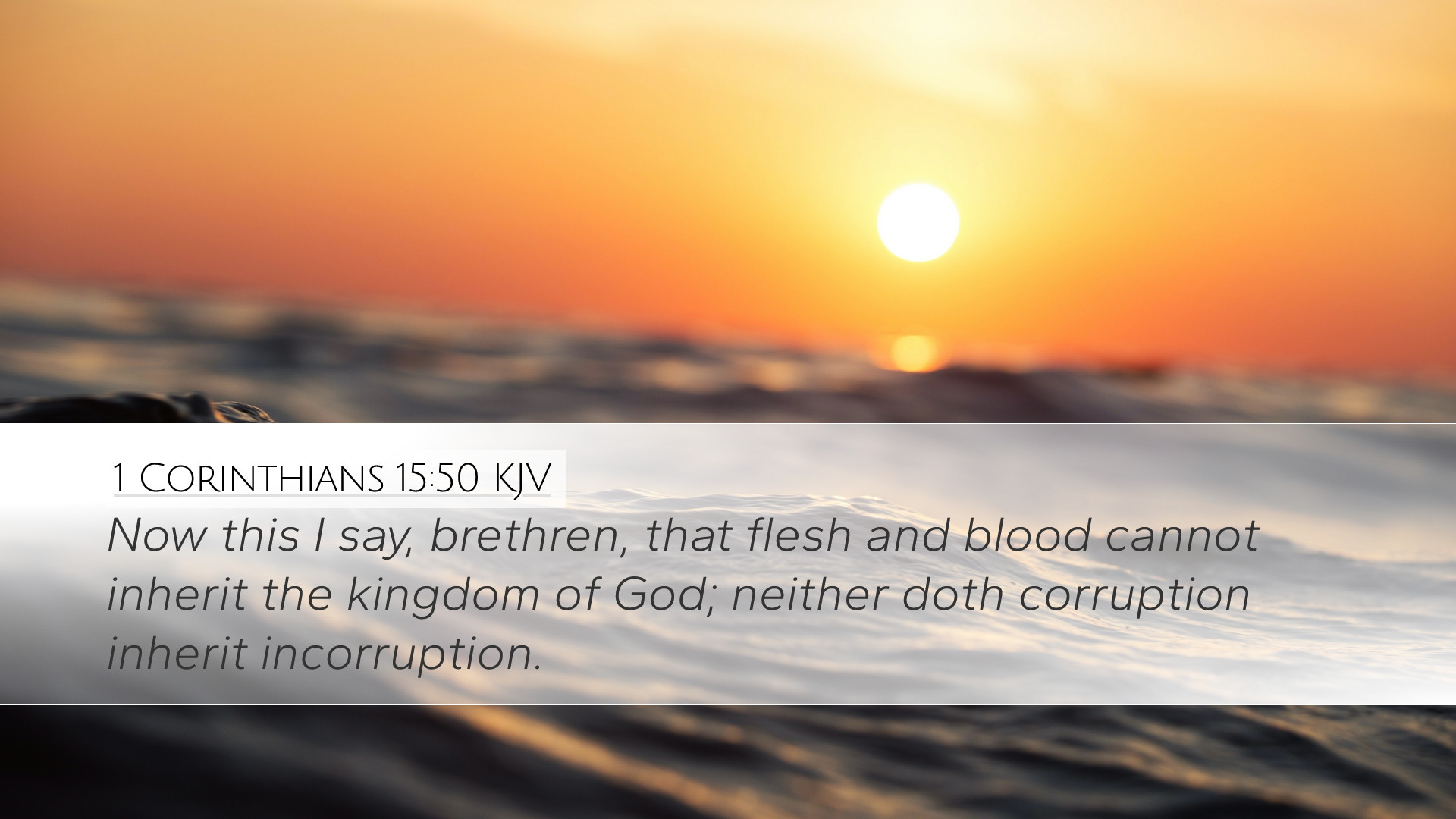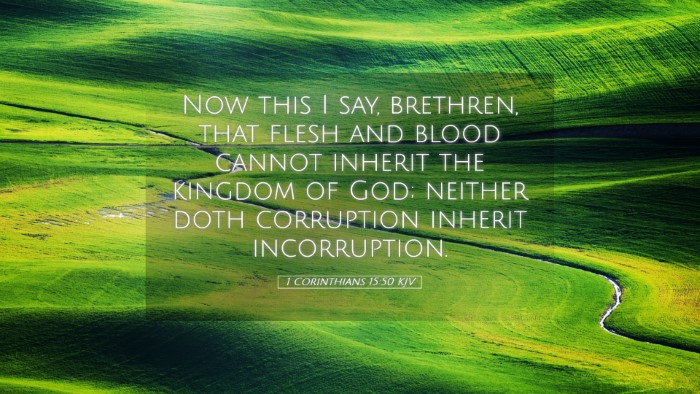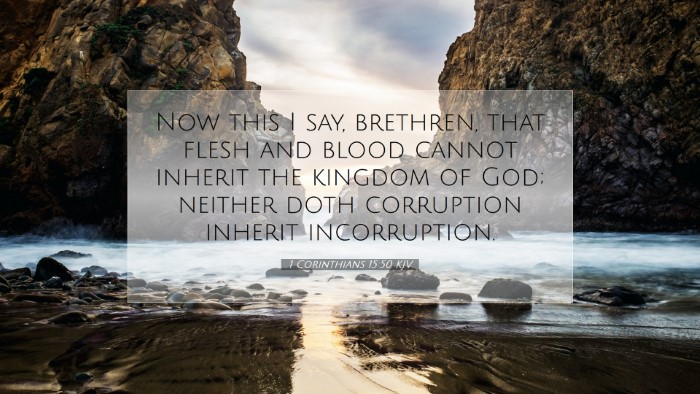Commentary on 1 Corinthians 15:50
1 Corinthians 15:50 (KJV): "Now this I say, brethren, that flesh and blood cannot inherit the kingdom of God; neither doth corruption inherit incorruption."
Introduction
This verse is pivotal in the discussion of the resurrection and the nature of the Christian hope. The apostle Paul, writing to the Corinthians, addresses misconceptions regarding the body and the afterlife. His teaching highlights the transformation that occurs from mortal to immortal, affirming the believer’s hope in eternal life.
Insights from Matthew Henry
Matthew Henry emphasizes that Paul is making a crucial distinction between the earthly and the heavenly. He asserts that earthly bodies, marred by sin and corruption, are incompatible with the divine realm of God's kingdom. As Henry elaborates, the “flesh and blood” refer not only to the physical aspect of humanity but also to the inherent weaknesses and sinful nature that come with it.
- The Nature of the Kingdom: Henry poignantly notes that the kingdom of God is characterized by righteousness, peace, and joy in the Holy Spirit (Romans 14:17). Therefore, to participate in this kingdom, one's nature must be transformed.
- Corruption vs. Incorruption: Henry argues that corruption is a consequence of the Fall, and it represents not just physical decay but also moral and spiritual decay. In contrast, incorruption signifies eternal life that is free from sin and death.
Insights from Albert Barnes
Albert Barnes offers a detailed exegesis of the term "inherit." He explains that inheritance in the context of Scripture involves being partakers of the blessings and privileges of God's kingdom. Barnes underlines that since flesh and blood are perishable, they cannot partake in the eternal joy that God’s kingdom offers.
- Transformation Process: Barnes emphasizes the necessity of spiritual rebirth and transformation. He reflects on John 3:6, where Jesus states that "that which is born of the flesh is flesh; and that which is born of the Spirit is spirit," highlighting the need for renewal by the Holy Spirit to enter the kingdom.
- Assurance of the Resurrection: He points out that Paul is preparing the Corinthians for a profound change that will occur at the resurrection. This transformation is essential for believers to fully experience the glory of God.
Insights from Adam Clarke
Adam Clarke provides a theological perspective on the implications of this verse, particularly regarding the resurrection body. Clarke indicates that the phrase "flesh and blood" signifies not only the physical body but also the corruptible nature that believers must shed.
- Symbolism of Flesh and Blood: Clarke explains the symbolic meanings behind Paul’s words. "Flesh and blood" signifies all that is natural and earthly, which cannot respond to the glorious state of heavenly existence.
- Hope and Encouragement: Clarke encourages believers to take heart, as the teaching of the resurrection assures them that their current suffering and mortality are only temporary states. The promise of glorification awaits those who trust in Christ.
Theological Implications
The implications of 1 Corinthians 15:50 extend beyond its immediate context and challenge believers to re-evaluate their understanding of the body, the afterlife, and their hope in Christ. The transformation from mortality to immortality is a cornerstone of Christian doctrine.
- Redefining Identity: Believers are called to view themselves not solely in terms of their earthly existence but in relation to their future hope. This verse invites Christians to reflect on their spiritual identity rather than merely their physical nature.
- Spiritual Preparedness: The passage serves as a reminder to prioritize spiritual matters over worldly ones. As pastors and theologians are tasked with directing their congregations, this verse offers a prophetic word about preparing for life beyond the grave.
Conclusion
In summary, 1 Corinthians 15:50 is a powerful reminder of the Christian hope of resurrection and transformation. Through the combined insights of Matthew Henry, Albert Barnes, and Adam Clarke, we see the necessity of moving beyond the limitations of "flesh and blood" into the profound reality of the Kingdom of God. Believers are encouraged to seek a spiritual renewal, assuring them of their incorruptible inheritance through Christ, who has paved the way for eternal life.


